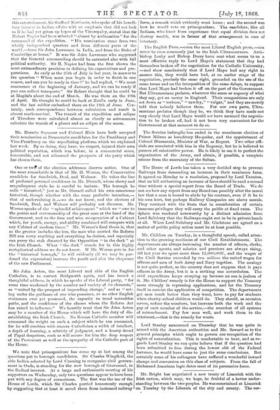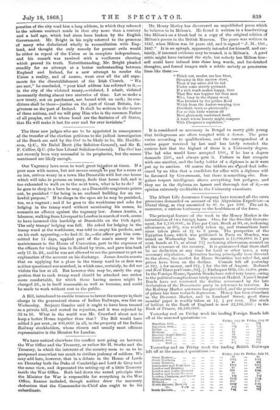Mr. Bright has negotiated a new treaty of Limerick with
the Irish nation, which may, we hope, be fruitful of a better under- standing between the two peoples. He was entertained at Limerick on Tuesday by the Liberals of the city and county. The cor- /oration of the city read him a long address, in which they referred to the solemn contract made in that city more than a century and a half ago, which had since been broken by the English Government. Mr. Bright in his reply referred to the presence of many who disbelieved wholly in reconciliation with Eng- land, and thought the only remedy for present evils would be either in repeal of the Union or in complete independence, and his remark was received with a vociferous cheering which proved its truth. Notwithstanding, Mr. Bright pleaded steadily for an attempt at a better understanding between England and Ireland, for a new attempt to render the Union a reality, and of course, went over all the old argu- ments for the disestablishment of the Irish Church. "We are met," he concluded, "your kind address has referred to it,— in the city of the violated treaty,—violated, I admit, violated incessantly during almost two centuries of time. Let us make a • new treaty, not on parchment, not bound with an oath; its con- ditions shall be these—justice on the part of Great Britain, for- giveness on the 'part of Ireland. It shall be written in the hearts • of three nations, and we will pray Him who is the common Father of all peoples, and in whose hand are the destinies of all States, that He will make it last for ever and for ever inviolate."































 Previous page
Previous page